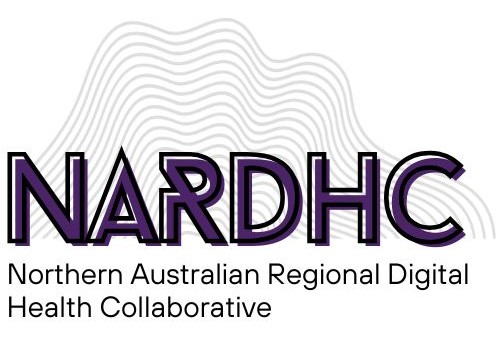
Expand your skill set in digital health
A micro credentialled course designed for the rural and remote health workforce
Welcome to the NARDHC digital health course for the rural and remote workforce
Digital health has the potential to significantly transform healthcare delivery and access for people living in rural and remote areas. A connected and digitally enabled health system supports more equitable access to person-centered services, using readily available data to inform health decision-making. Importantly, a digitally capable health workforce can effectively leverage digital health technologies to innovate and improve healthcare delivery to people living in geographically distant areas.
What will you learn?
In this course you will explore a range of topics designed to enhance your skills as a digitally capable health professional. This will include:
- Explain concepts, tools, frameworks and systems relevant to supporting digital health adoption, use and innovation.
- Summarise health system outcomes enhanced by digital health in your healthcare context.
- Analyse the complex problems associated with implementation of digital health initiatives in regional, rural and remote Australia.
- Propose a fit-for-purpose digital health initiative to support sustainable healthcare in your healthcare context.
Flexible
Learning is 100% online and self-paced
Free
Available at $0 cost
Fit
Designed for the rural and remote health workforce
Course structure
The full course is structured as three discrete microcredentials. This means you can study one, two or three of the course credentials, allowing you to enter at any point, depending on your previous knowledge and experience or digital health education needs.
Let’s take a closer look at each credential:
Credential 1: Foundations of digital health in rural and remote healthcare contexts
This credential provides you with an overview of foundational digital health concepts, before moving to discuss your role as a digitally capable healthcare professional. In addition, important governance considerations, frameworks and industry standards relevant to the Australian healthcare context are covered in this first credential.
This credential contains three units of learning:
- Foundational concepts of digital health
- Preparing to be a digitally capable health professional
- Understanding governance, frameworks, regulatory and industry standards
How will you be assessed? You will complete a series of online learning activities and a multiple-choice quiz to achieve this credential.
Credential 2: Leveraging digital health technologies for rural and remote health
This credential gives you a comprehensive overview of the many technologies encompassing digital health. In addition, the vital elements required to maintain, monitor and secure digital health data are highlighted in this credential.
This credential contains three units of learning:
- Technologies – part 1
- Technologies – part 2
- Data, monitoring and security
How will you be assessed? You must complete a series of activities and a discussion board post to complete this credential.
Credential 3: Implementing digital health in rural and remote healthcare settings
This credential encourages you to consider your own health context and the enablers and barriers existing in healthcare delivery in this context. You will explore the patient journey, the digital divide and think about digital health initiatives that could be planned and implemented within your healthcare context to improve healthcare delivery.
This credential contains three units of learning:
- Digitally enabled workflows
- Mapping the patient journey
- Implementation and evaluation
How will you be assessed? You must complete a series of activities, a multiple-choice quiz, and a discussion board post to complete this credential.
Duration – Each credential is estimated to take about 5-8 hours to complete. You can start at any time and learn from anywhere.
Access – All resources and activities are available 100% online, so you will need a computer and internet to access the learning platform.
Who is this course for?
This course has no specific entry requirements. It has been designed for individuals with some experience and knowledge working in a rural, regional or remote healthcare settings within Australia. It is also suitable for those with a general interest in digital health as it applies to rural and remote Australian contexts.
The course assumes that learners can work independently and are comfortable engaging with tasks that progressively increase in complexity and incorporate specialist digital health terminology.
You will engage with contemporary multimedia content and complete activities that allow you to consolidate and apply your learning to your specific workplace context
You will be guided to complete online activities that will equip you with the understanding of how to optimise digital health as part of your routine practice
On successful completion of each credential, you will obtain the skills and knowledge required by digitally capable health professionals working in rural and remote settings
Statement of quality assurance
This microcredential was developed by Dr Tracey Ahern, Pieta Shakes, Tracey Gooding, and Jessica Best from Nursing and Midwifery, College of Healthcare Science at James Cook University. Course learning outcomes, content and activities were designed in alignment with National Digital Health Strategy 2023-2028 and reviewed by individuals with expertise in digital health. Quality assurance includes the ongoing course review and student experience engagement and evaluation.
